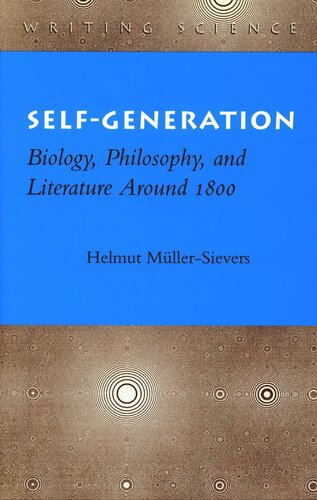

Most ebook files are in PDF format, so you can easily read them using various software such as Foxit Reader or directly on the Google Chrome browser.
Some ebook files are released by publishers in other formats such as .awz, .mobi, .epub, .fb2, etc. You may need to install specific software to read these formats on mobile/PC, such as Calibre.
Please read the tutorial at this link: https://ebookbell.com/faq
We offer FREE conversion to the popular formats you request; however, this may take some time. Therefore, right after payment, please email us, and we will try to provide the service as quickly as possible.
For some exceptional file formats or broken links (if any), please refrain from opening any disputes. Instead, email us first, and we will try to assist within a maximum of 6 hours.
EbookBell Team

4.0
76 reviewsThe genealogy and function of epigenesis—the theory that organisms generate themselves under the guidance of a formative drive—provides a unique means of understanding the profound changes in philosophy, philosophy of language, and literature at the turn of the nineteenth century. The book begins by describing how and why epigenesis came to replace the reigning model of biological origination, preformation—the theory that all organisms were preformed at the creation of the world. Contemporary with these developments, Kant used the figures of epigenesis and self-formation to illustrate his concepts of the origin of the categories, the possible success of practical reason, and the validity of aesthetic and teleological judgments. The author shows how Kant's figurative use of self-generation was turned into an indispensable determination by Fichte and his successors: philosophical knowledge can claim absolute certainty only if it can prove that it generates itself in logically accountable procedures. This self-generating philosophy—also known as Idealism—was in turn accompanied by a revaluation of the origin of language, notably by Herder and by Humboldt, who attempted to formulate self-generation as the philosophical foundation for a future Science of Language. The book concludes by demonstrating that the biological, philosophical, and linguistic problematic of self-generation is at the heart of Goethe's novel Elective Affinities and Beaumarchais's The Marriage of Figaro.